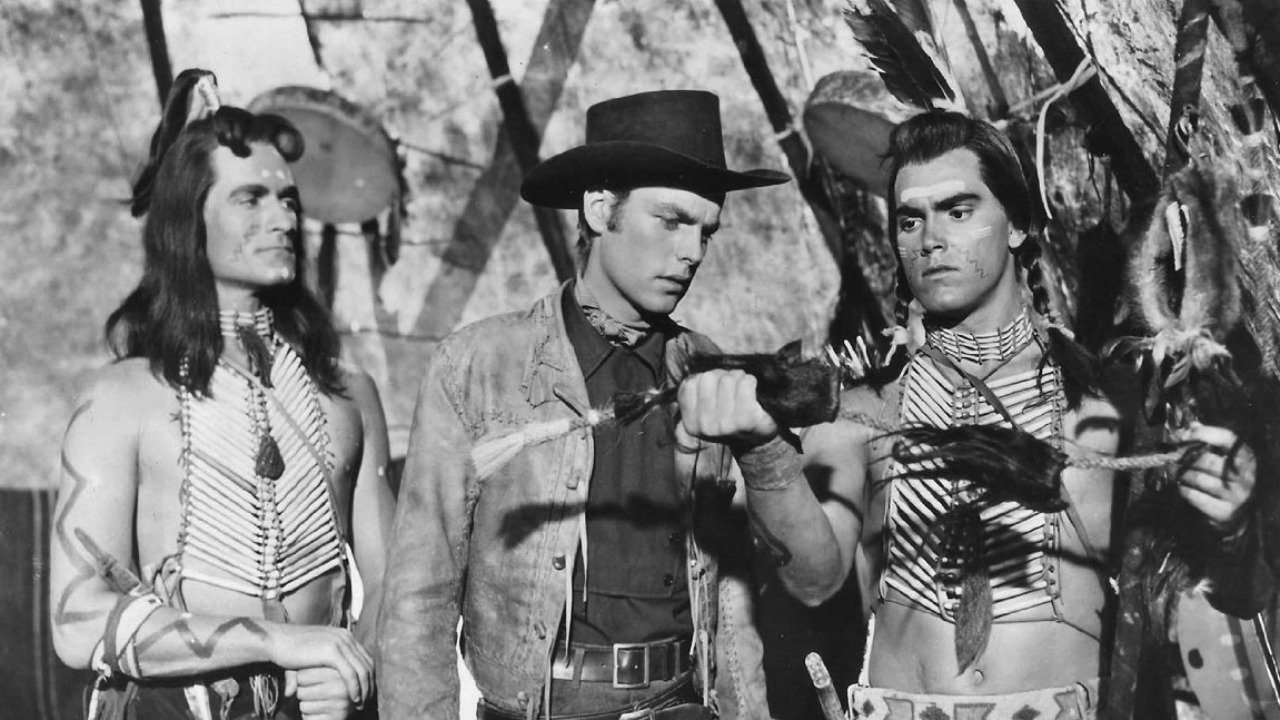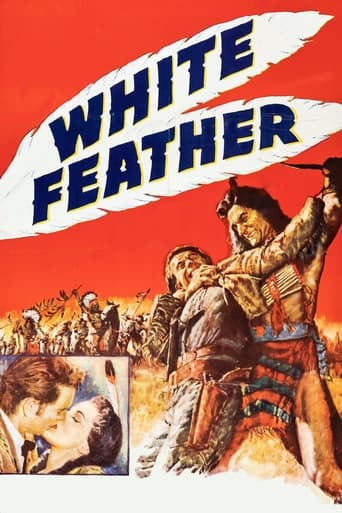

White Feather is a combination of the plots of both Broken Arrow and Cheyenne Autumn. It's the story of a romance between Robert Wagner and Indian princess Debra Paget set against the background of the surrender of the Cheyenne nation to the white man. Wagner is part of delegation sent to the Cheyenne chief Eduard Franz to negotiate a treaty with the Cheyenne. Although Franz's son Jeffrey Hunter is for no surrender at any price, he and Wagner become friends. Wagner becomes more than friends with Hunter's sister Paget, something that arouses the old jealous green eye in Hugh O'Brian, an Cheyenne warrior who figures Paget's his.Paget's not going to find it easy in the white world in any case. The post sutler Emile Meyer's not liking Indians in any case and even though his daughter Virginia Leith becomes friends with Paget, she's got a thing for Wagner herself.White Feather is a sympathetic portrayal of the Cheyenne in the last days of a proud warrior nation. Best in the cast is Jeffrey Hunter, the man who won't give in and most of all won't surrender his pride.John Lund as the post commander and Milburn Stone the civilian treaty negotiator are in the cast as well. White Feather is a fine western that does not get near enough acclaim.
... View MoreFrom the era of wide screen CinemaScope comes this fine western about dealing with the Cheyenne Indians in Wyoming in 1870.The film benefits from having a good script that keeps things tense, good acting, and excellent cinematography (which was far superior 50 years ago compared to today's movies).There's no sense retelling the plot, but female viewers ought to love Robert Wagner in this role, as well as Jeffrey Hunter (showing lots of tan skin) in his Indian makeup. Speaking of skin, the lovely and usually clothed neck to toe Debra Paget gets to show some neck, shoulders and back -- however briefly.But the main thing is the tense story. Without much gunfire the film provides almost no opportunity for a snack bar break. Please take the other low ratings with a grain of salt. Liberals and their intrusive and annoying PC mantra will no doubt be annoyed by the frequent use of the word "Indian" as well as having whites cast as Indians. Oh the shame! This despite the positive view of Indians reflected in the film; herein they even have a healthy sense of humor. Humor, that's just not liberal. At least nobody smokes a cigarette.
... View MoreGood western, it does show the Indians having some dignity. But don't let that lull you into the now too-typical "All Indians Good--White Man Evil". As far as what we did to them, it was truly appalling. But as the late historian Stephen Ambrose stated in his last book, "What should have happened?" And as far as stealing land goes, I once saw some Crow Indians talking about the Souix with great disgust on how they had stolen Crow land. Besides, people are still stealing land under the same principle-- eminent domain. happens every day. The US Supreme Court just upheld it last year.Still, a good western worth watching. We can only guess at what the secret Ann has. I figured she must have had a baby out of wedlock, been caught with another man in bed, or something like it. It's kind of hinted at when we first see her, disheveled in the back of the store.
... View MoreLooked at this on TV as just another western but found myself admiring the camera-work, scenery and performances. Though the direction was at times unexciting, the story was well told and dignified by a good performance by Wagner, so very handsome that it is no wonder the young squaw wants her first kiss with him. Jeffery Hunter, so overlooked but always worth watching, looking incredibly fit (sad to think he died just 4 years later) gave a very strong performance as the head-strong son of the chief, (reminds me of Sal Mineo in Cheyenne Autumn (same story?)) who rides around with Hugh O Brian (Wyatt Earp as an native American!). at the end the scenes between Wagner and Hunter are poignant and stay with you. The sad face of the chief says it all. The film was just a bit overlong and drags in parts which meant I missed bits that I should not have done, but there are some magnificent scenery and cavalry and Indian charges.
... View More